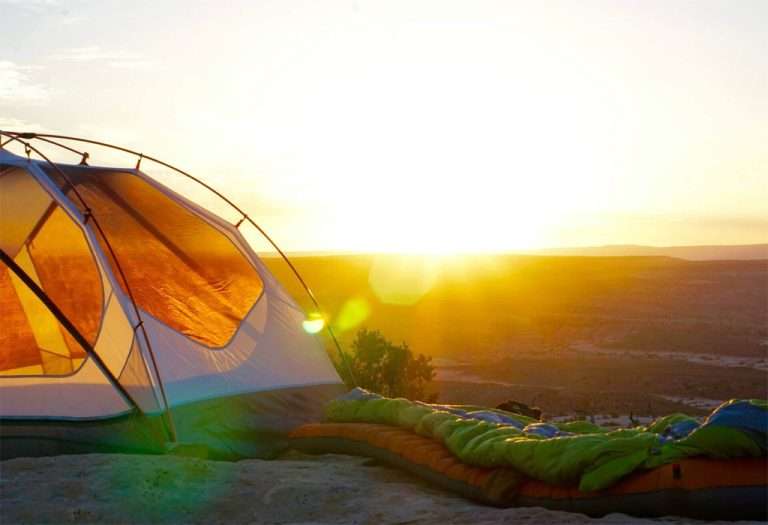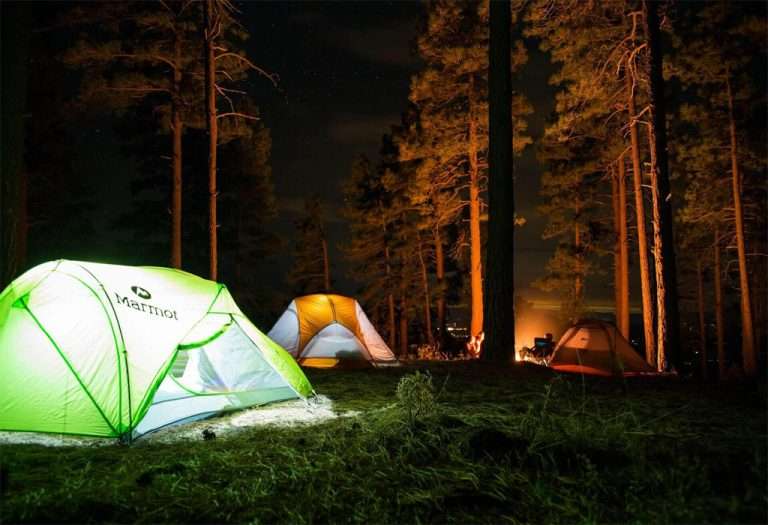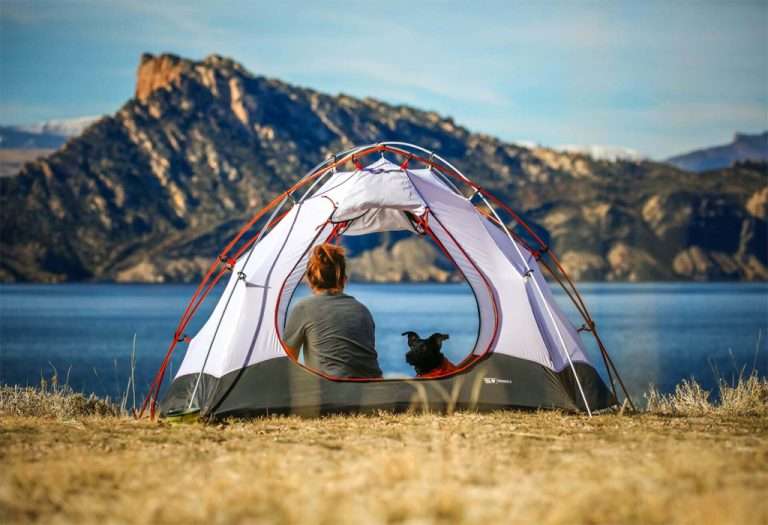Do you want a break from your daily life to enjoy nature and fresh air? Try solo camping! Solo camping is a great way to leave behind daily stress and find some quiet. It lets you see beautiful places and learn about yourself.
In this blog, we’ll talk about why solo camping is good, what camping gear you need, how to get ready for your trip, and answer some common questions. Get ready for an amazing adventure camping by yourself!

1. Take Things at Your Own Speed
A big benefit of solo camping is being able to do things at your own speed. Usually, we’re busy with work, family, and friends, always moving fast. But when you camp alone, you can forget these pressures. You decide your own schedule, like getting up early for a sunrise or taking a slow hike without worrying about time. This lets you really see nature and notice little things you might miss otherwise. Solo camping is great for getting back in touch with yourself and enjoying the simple outdoor life.
2. Stronger Bond with Nature
- Solo camping brings you closer to the natural world. Here’s how it strengthens your connection to nature:
Listen to nature: When you camp alone, you can fully take in the sounds of birds, leaves, and rivers. These sounds relax your mind and help you enjoy nature’s beauty. - See nature closely: With no one else around, you have time to look closely at nature’s details.
Unplug from the world: Solo camping lets you turn off your technology and social media. Instead of looking at your phone, you can enjoy nature and give your mind a break from everyday noise.
3. More Self-Confidence
Camping alone means you handle everything yourself, which can boost your confidence. Here’s how:
- Independence: You do everything on your own, from setting up camp to cooking to finding your way. Each task you complete makes you more confident.
- Solving problems: You might face unexpected things like bad weather or broken gear. Solving these problems makes you better at thinking on your feet and builds your confidence.
- Stepping out of your comfort zone: Solo camping pushes you to try new things, which helps you grow and find out more about yourself. Facing and overcoming fears makes you believe more in your abilities.
Selecting Suitable Camping Equipment for Solo Camping
Picking the right camping gear is key for a great solo camping trip. Before you go, make a list of must-have camping items to ensure a safe and fun time outdoors. Think about things like camping chairs and stoves to make your trip easier and more comfortable.
Building a Simple Solo Camping Checklist
Camping alone is fun, but you need to be ready. Here’s an easy camping checklist to help you pack:
- Tent and Bedding: Get a good tent, a sleeping bag for the weather, and a comfy mat to sleep on.
- Clothes: Bring clothes for all kinds of weather, including warm layers, rain gear, and a hat for the sun.
- Food and Water: Take enough food and something to cook it with, like a small stove. Remember a water bottle and maybe a water purifier.
- Navigation: Have a map, compass, or GPS to avoid getting lost.
- First Aid: Keep a basic first aid kit handy for small injuries or emergencies.
- Light: Pack a flashlight or headlamp and extra batteries.
- Fire Making: Carry matches, lighters, or something to start a fire.
- Personal Stuff: Don’t forget your toothbrush, toilet paper, and any medicines you need.
- Emergency Contact: Tell someone your plans and when you’ll return.
- Clean Camping: Bring bags for trash and know how to keep your campsite clean.

Using Your Camping Equipment Properly
For solo camping, it’s important to know how to use your gear. Here’s a guide:
- Tent Setup: Try setting up your tent at home first. This makes it easier and faster to do at your campsite.
- Portable Stove Use: Learn to light and use your stove safely. Know how to adjust the flame and switch it off after cooking.
- Sleeping Bag and Pad: Practice rolling and packing your sleeping bag and pad. Check that your sleeping bag is suitable for the camping weather.
- Navigation Tools: Get used to your map, compass, or GPS. Practice with them so you can navigate easily.
- First Aid Kit: Know what’s in your kit and how to use it. Basic first aid knowledge is helpful for small injuries.
Flashlights and - Headlamps: Test your flashlight or headlamp before leaving. Make sure they work and bring extra batteries.
- Fire Safety: If you’re making a fire, learn to do it safely. Keep water or sand close to put the fire out.
- Packing Your Backpack: Pack your backpack so it’s balanced and easy to carry. Keep frequently used items like a water bottle in easy-to-reach spots.
Getting Ready for Your Solo Camping Adventure
Here’s how to prepare for your trip:
- Check the weather: Before you go, look up the weather at your destination. This helps you pick the right clothes and gear and get ready for any weather changes.
- Get permits and know the rules: Find out if you need permits, especially for national parks or other special areas. Get these ahead of time. Also, learn the rules of the campsite to make sure you follow them.
- Pick a good campsite: Think about safety, what’s available, the view, and how close it is to outdoor activities when choosing a campsite. Look up different campsites and read what other campers say. You might also want to look at popular camping spots in the Philippines.

Preparing for Your Solo Camping Trip
Before you go solo camping, there are some important steps to take. Here’s a list to help you get ready and leave without worries:
- Tell a friend or family member about your plans, including your camp location and when you plan to come back.
- Get to your campsite early. This gives you plenty of time to set up, look around, and get to know the place before it gets dark.
- Bring a personal locator beacon, especially if you’re going to a remote area with no phone service. This can help rescuers find you if there’s an emergency.
- Go through your camping gear, supplies, and list again to make sure you have everything for a safe and comfy trip.
- Make sure your vehicle is in good shape and has enough gas for the trip.
- Remember, safety, being ready, and letting others know your plans are key for a worry-free camping experience.
Frequently Asked Questions
How do you deal with loneliness during solo camping trips?
Solo camping can sometimes feel lonely, but there are ways to manage it. Here are some ideas:
- Bring things to keep you entertained, like a good book, games, puzzles, or a journal. Do activities that you like and that keep your mind busy.
- Use the quiet time for thinking and self-discovery. See the alone time as a chance to connect more with yourself and nature.
- Listen to music or podcasts with headphones if you miss being around people. Just make sure you can still hear important natural sounds, like animals or weather changes.
What are some common mistakes people make when solo camping, and how can they be avoided?
Some common mistakes people make when solo camping;
- Overpacking: It’s easy to bring too much stuff. Make a list of just what you need to avoid carrying too much.
- Not Planning for Emergencies: It’s important to be ready for emergencies. Bring a first aid kit and a map, and tell someone about your trip and when you’ll be back.
- Not Knowing the Area: Not researching your destination can cause problems. Learn about the area, including any dangers or rules, before you go.
- Ignoring Your Limits: Don’t push yourself too hard. Know what you can handle physically and take breaks when you need to.
- Not Following Leave No Trace: It’s important to respect nature. Try to leave the place as you found it and minimize your impact on the environment.
By paying attention to these things, you can avoid these mistakes and enjoy your solo camping trip.
CONCLUSION
To sum up, solo camping is a special and fulfilling adventure that helps you bond with nature and build your confidence. It gives you the freedom to do things your way and discover things in your own time.
With the right planning and safety measures, it can be a stress-free journey. Just make sure to prepare well, have all the gear you need, and enjoy the quiet moments for a memorable solo camping trip.
So, get your gear ready, dive into the adventure, and enjoy every moment of your solo camping journey!
